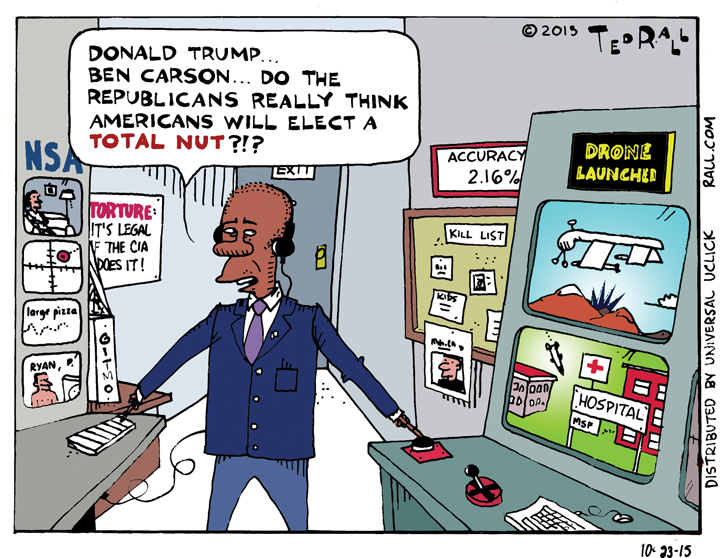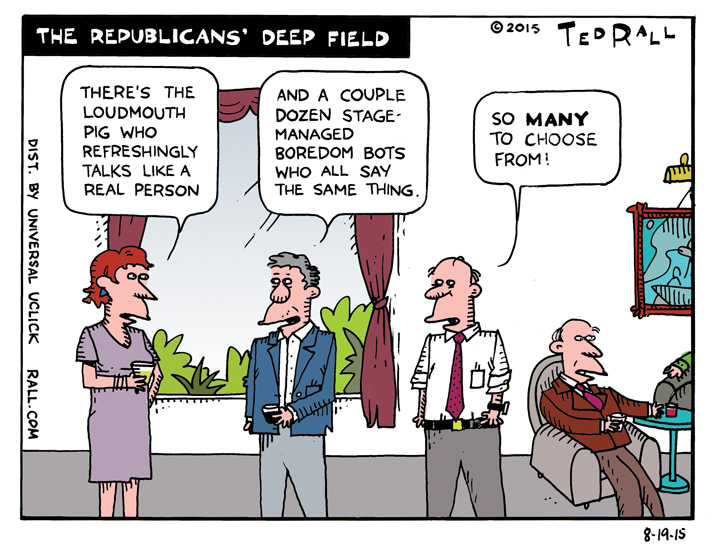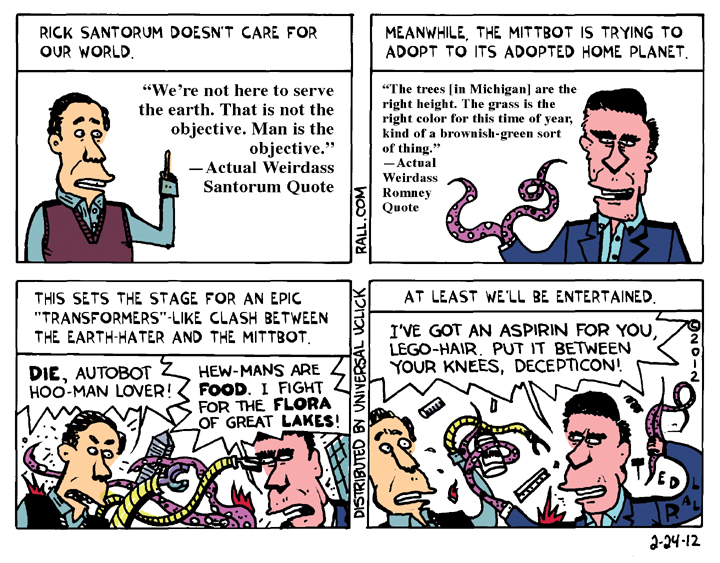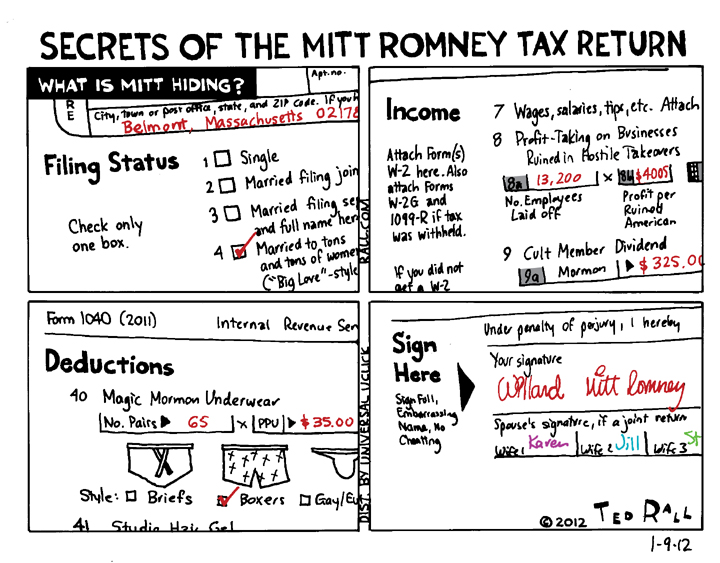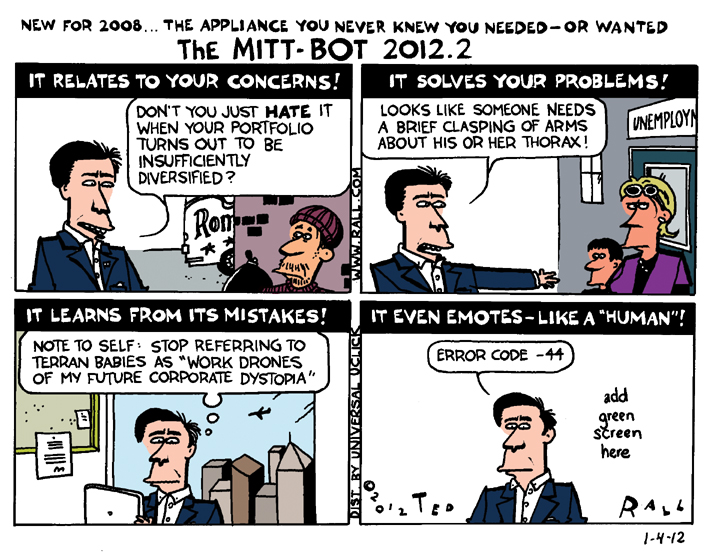Editorial Cartoonists Ted Rall (from the Left) and Scott Stantis (from the Right), discuss the pressing issues of the week. First up: a discussion of the presidential candidacy of former South Carolina Governor and U.N. Ambassador Nikki Haley, which dovetails into the question: is the Republican Party too racist to elect a woman of color? Also, the apparent inevitability of President Trump becoming the 2024 GOP nominee. Following that, Scott and Ted discuss the seemingly nonstop parade of Communist Chinese balloons invading American airspace. Ted offers a never-before-suggested solution (which is his answer to just about everything): FLAME THROWER DRONES! Lastly, Ted and Scott examine next steps in the Ukraine War, which they agree has become a quagmire and could remain one for the next decade.



